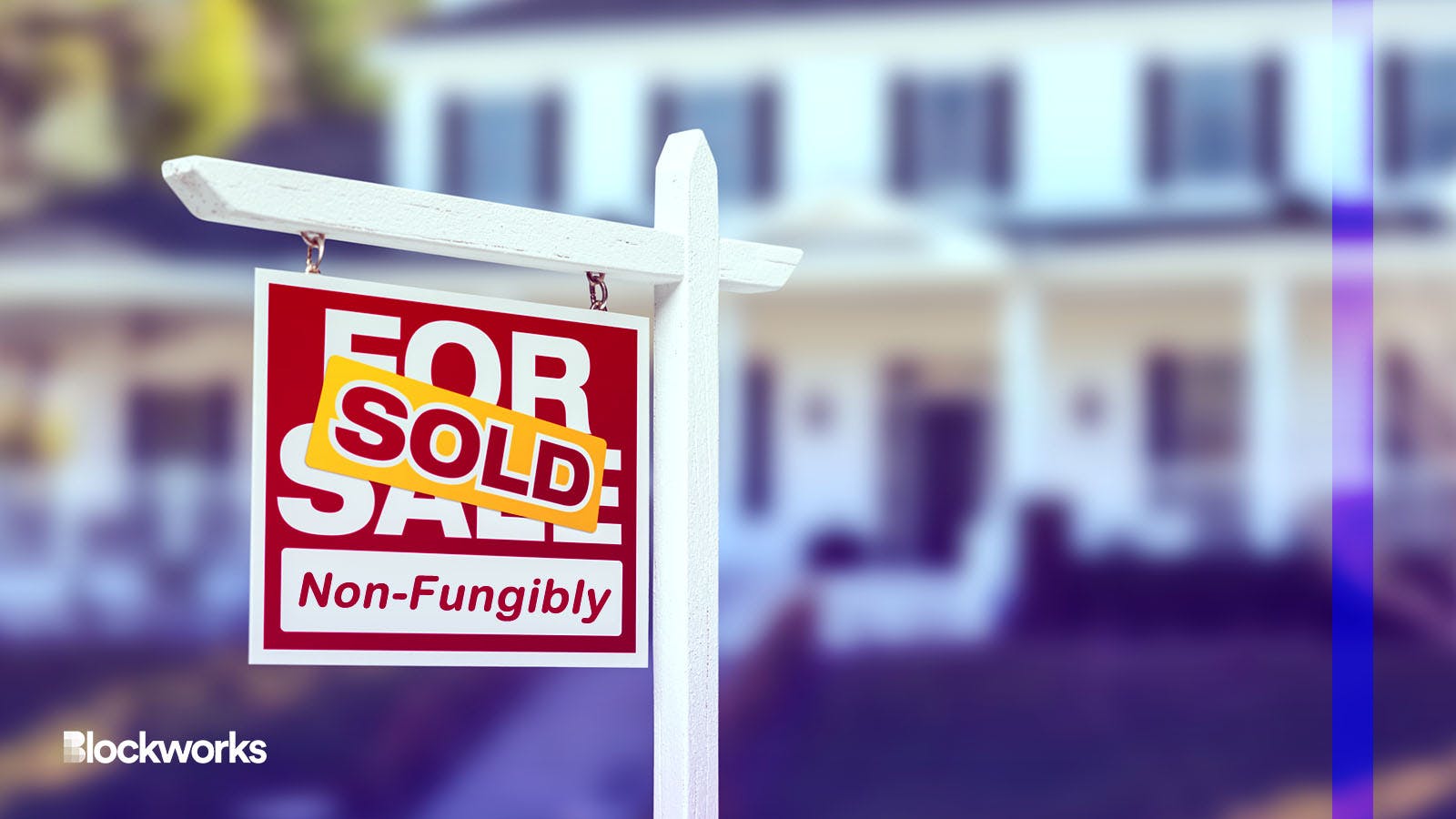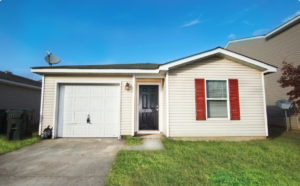Roofstock Sells Alabama Rental Property Via NFT
Buyers can also turn to DeFi lenders for cryptocurrency financing when it comes to purchasing homes

Andy Dean Photography/Shutterstock modified by Blockworks
Roofstock, a property technology company focused on selling single-family rental homes, has completed its second on-chain property sale through Roofstock onChain (ROC), its Web3 subsidiary.
The property sold for $180,000 on an NFT marketplace built by Origin Protocol. It will be the first home to have been purchased on any NFT marketplace with on-chain leverage from DeFi lender Teller protocol.
Roofstock was not designed to be a blockchain project — but as the company grew, it saw the potential in blockchain technology and its ability to make single-family rental homes more accessible, Geoffrey Thompson, chief blockchain officer at Roofstock, told Blockworks.
Ultimately, he said, “what it boils down to is being able to transact a real-world home with one click using NFT smart contracts.”
So, how does it work?
The process of purchasing a property through the NFT marketplace is relatively simple, Sanjay Raghavan, head of Web3 initiatives at Roofstock, told Blockworks.
Following existing Web2 real-estate processes, a prospective buyer must purchase a real estate property and title it as a single-purpose limited liability company (LLC).
“The purpose of that LLC is to hold title for the property,” he said. “The Web3 part is creating an NFT that is associated with the sole ownership of this LLC — so, when people are selling the NFT on a marketplace, in essence, what is really happening is the ownership of that LLC changing hands.”
Read More: The Top 8 NFT Marketplaces – Where To Buy NFTs
To create an NFT, prospective buyers and sellers must mint membership tokens through a know your customer (KYC) check. Once a buyer is verified, their membership token, a non-transferable — sometimes known as “soulbound” — token, will reflect their verification status.
“The Web3 home is purchased on an NFT marketplace, but our smart contract checks to see if the buyer is KYC’ed for the transfer to go through. This is true for both primary and subsequent sales,” he said. “In addition, for subsequent sales, the property’s diligence info will need to be refreshed, after which the NFT is updated with a sellable flag.”
Legal compliance
Property NFTs by ROC follow an ERC-721 standard, often used to represent the ownership of NFTs.
Thompson notes that a large part of his initial efforts in the project was focused on ensuring that legal compliance was sufficient to allow for effortless property transactions.
“The NFT is associated with a single-member LLC that is member-managed,” Thompson said. “What it boils down to, effectively, is that the owner of the token makes the decisions about what happens to the house — if they want to rent it on a short-term basis using Airbnb, or if they want to rent it on a long-term basis — those are going to result in different economics.”
As the token does not meet the elements of the Howey four-prong test — a method used by the US Supreme Court to determine whether a transaction is considered an “investment contract” — it is not considered a security, Thompson said.
“In an investment contract, a passive investor relies on the managerial efforts of a sponsor or promoter to produce economic gains,” he said. “We avoid the securities laws by not promising returns for anyone and by not taking on management duties for people.”
Onboarding real-world assets to DeFi
Another benefit of bringing properties on-chain is the ability to now provide DeFi lenders with real-world asset collateral, Thompson said.
Roofstock partnered with Teller protocol to allow borrowers to raise loan requests and finance their purchases through USDC.homes.
Once a lender accepts the borrower’s request, the protocol will “permissionlessly [use] funds to purchase the LLC NFT,” then transfer the NFT to a smart contract escrow vault until loans and interests are repaid.
Buyers can make a down payment for a little as 20% of the value of the property. In the present case of 205 Cloverbrook Drive in Harvest, Alabama, the borrower took out a two-year, $108,000 loan, at an interest rate of 7%.
 205 Cloverbrook Drive in Harvest, Alabama | Roofstock
205 Cloverbrook Drive in Harvest, Alabama | Roofstock“The DeFi world is so much cleaner in terms of how financing can be done,” Raghavan said. “Financing can be instantaneous, so you don’t have to wait three, four weeks to send out pay stubs, bank statements, tax records and all these things to a lender who’s then sitting in underwriting for weeks.”
Using cryptocurrencies to finance real estate is an exciting development for DeFi, Matthew Liu, the co-founder of Origin Protocol, notes.
“More RWAs coming on-chain means that DeFi will see accelerated growth and TVL and other metrics will go up over time,” Liu said. “Conversely, we are showing that DeFi has a place in the physical world. Over time, we expect other RWAs like luxury handbags, watches, cars, commercial real estate, commodities, etc. to move on chain.”
Get the news in your inbox. Explore Blockworks newsletters:
- The Breakdown: Decoding crypto and the markets. Daily.
- 0xResearch: Alpha in your inbox. Think like an analyst.






